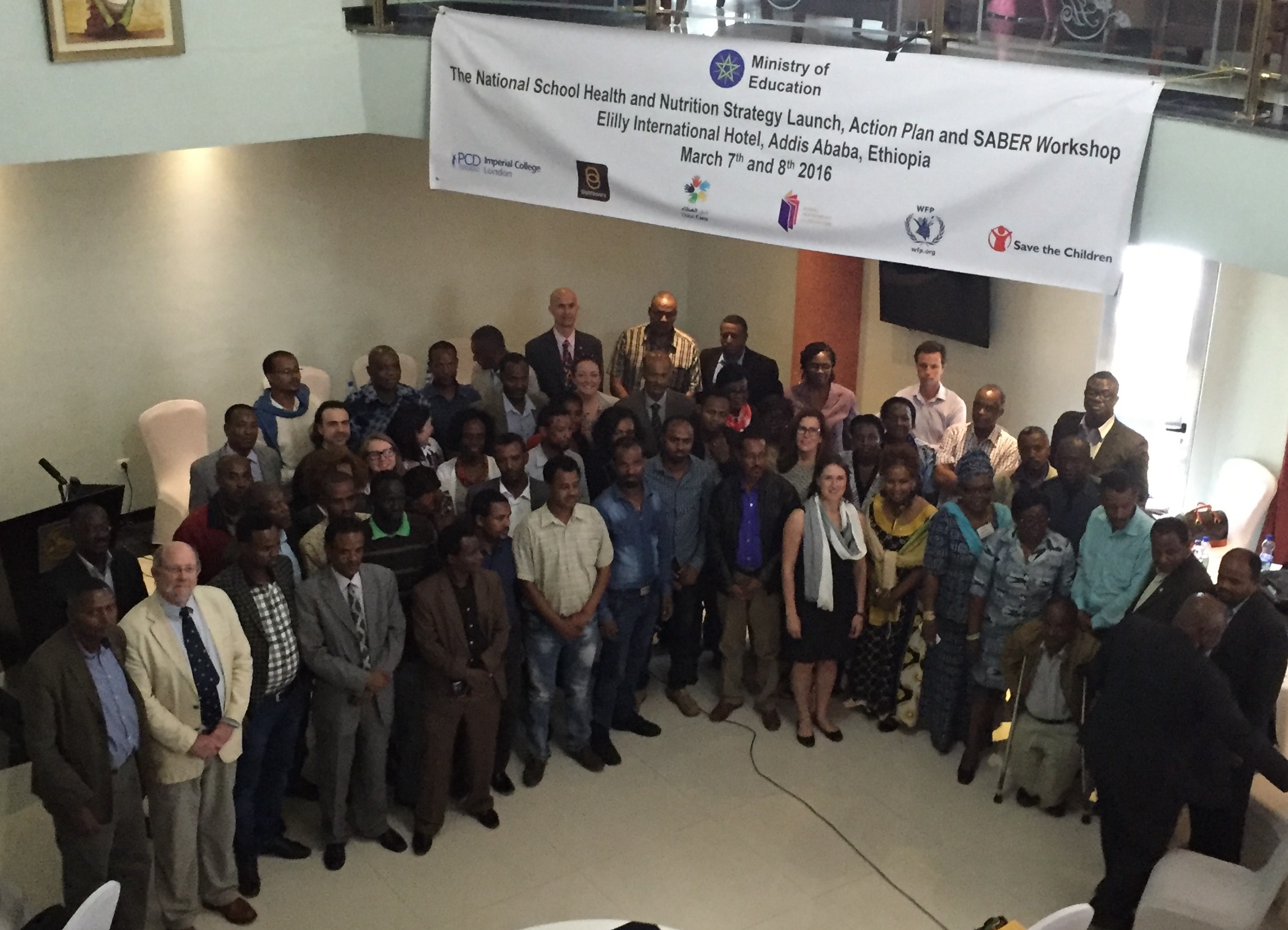
The Government of Ethiopia has launched a new 5 year School Health and Nutrition Strategy and Action Plan to improve the health and education of the country’s school children.
The strategy and action plan calls for schools to be used as a platform to deliver essential, simple and effective measures such as deworming, vision screening and health education. Once implemented school children in Ethiopia will benefit from improved health and nutrition but also improved access schools with research showing school health programmes result in increased school attendance and improved educational outcomes.
The launch was announced by Ato Berhanu, Advisor to the Minister for General Education at a special event convened with development partners including
Partnership for Child Development,
Sightsavers, World Food Programme
Global Partnership for Education,
Save the Children and
Dubai Cares.
Speaking at the launch, Dr Lesley Drake Executive Director for PCD said, “This strategy and action plan are very important for the future of Ethiopia’s children. It is an vital step in ensuring they have the health and educational opportunities needed to live fullfilling lives. .”
The strategy covers the four
Focusing Resources on Effective School Health (FRESH) pillars of: health related school policies, safe school environments, and health education and school health and nutrition services. In addition, the strategy calls for increased coordination, capacity building and increased planning and implementation structure.
The strategy was developed by the Ministry of Education, with support from the SHN taskforce and a range of international development partners. It is based on evidence collected during a nationwide situation analysis on the health, nutrition and education of school children in Ethiopia, literature reviews and consultations with stakeholders.
The SHN strategy supports the recently developed Education Sector Development Plan V, which emphasizes the need to improve the health and nutrition of school-age children in order to boost attendance and educational achievement. In addition, multiple school based interventions are already beginning; including the advent of the Ministry of Health’s national school based deworming campaign, which aims to protect all at-risk school children with deworming drugs once a year to protect them from parasitic infection.
Disease Control Priorities Roundtable
The strategy launch is one of a number of important school health and nutrition meetings taking place in Addis during the same week. Prior to the launch internationally renowned school health and school feeding academics, researchers and policy makers drawn from 5 African countries, the UN, NEPAD, the World Bank convened at the African Union to discuss the latest research and programmatic thinking on school feeding. The findings from this meeting will be published in the 3rd edition of Disease Control Priorities. Published once a decade, Disease Control Priorities evaluates the most pressing conditions and diseases contributing to the global burden of disease and evidences the most effective treatment programmes for them.
Find out more about this Roundtable.
SABER
Alongside this policy makers from the Ministries of Education and Health undertook a
2 day Systems Approach for Better Education Results (SABER) policy analysis review to identify ways to strengthen the countries school health and nutrition policies and programmes. SABER is a World Bank supported tool for analysing policies in countries. It is designed to map the current SHN situation and find gaps in policy and implementation.
This school health SABER builds on a previous SABER workshop covering school feeding that was run in August 2015 by the World Food Programme (WFP) and the Partnership for Child Development (PCD), Imperial College London.
The analysis from this workshop demonstrated the strong status of school feeding, being included in several policy documents, and highlighted the need for increased capacity and coordination, as well as requirements for well designed, evidence based school feeding programme.
It is hoped that the results of the follow up SABER School Health workshop will provide the Government’s School Health and Nutrition task force with a road map for planning and addressing the school health and nutrition agenda in Ethiopia.

